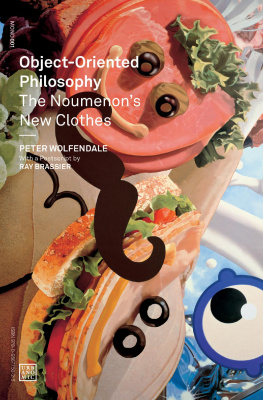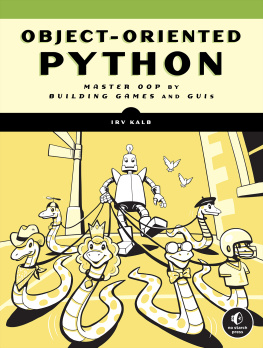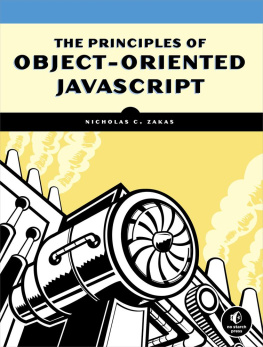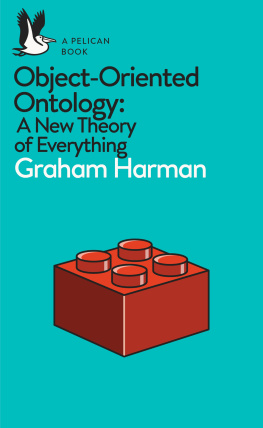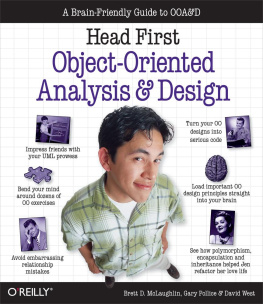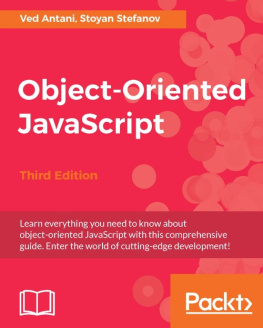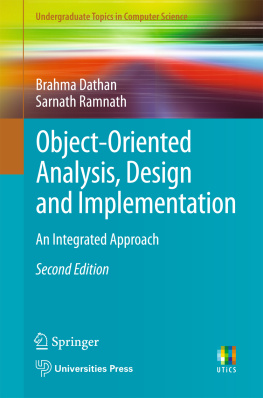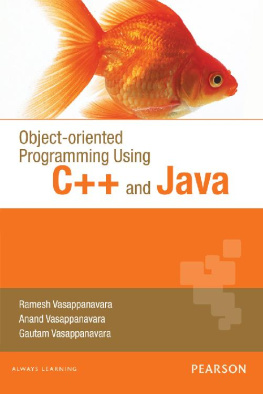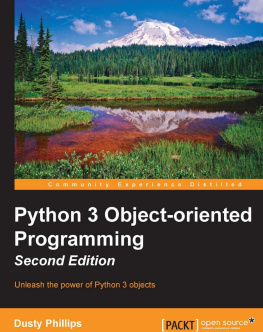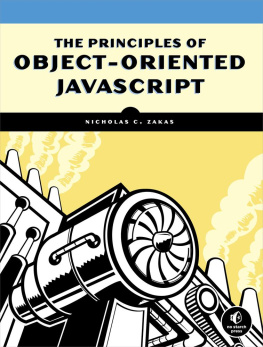Preface
I have been haunted by a single question for the last two years or so: Why are you still writing this, Pete? Echoed by friends, family, and my own conscience, it has been a constant refrain. It seems that I am finally in a position to provide an answerto retrospectively justify the amount of time and effort that has gone into writing this rather unusual book, and to provide some context for those wondering why they should devote their own time and effort to reading it. The fact that this is my first book only exacerbates its eccentricities: it addresses a contemporary and perhaps fleeting philosophical moment, yet it does so by delving deep into the disciplines past; it speaks of recent developments in the world of Continental philosophy, yet it often draws upon analytic ideas that are uncomfortably alien to that world; and above all, it undertakes a long and detailed discussion of a single philosophers work, and yet it aims to show that his work does not warrant such serious attention. Why read, let alone write, such an odd book? A brief explanation of its origins might shed some light on the matter.
In August 2009, I began a philosophy blog
It is important to emphasise how much I gained from these debates. It is all too easy in contemporary philosophical discourse to use the mere fact that one seriously disagrees with anothers ideas as a reason not to explore the nature of the disagreement any further. But it is worth remembering that doing so can improve our understanding of the relevant issues and stimulate the evolution of our own ideas. This is certainly what I got out of exploring my disagreements with OOP/OOO. Howeverand this is where things took an unusual turnthese theoretical gains did not come from uncovering useful philosophical insights or novel dialectical distinctions lingering beneath the surface. Quite the reverse: whenever I began to address seemingly simple ideas that struck me as problematic, their flaws would turn out to run much deeper than was initially apparent. Time and again, I discovered that I couldnt pull on a single loose thread without unravelling the whole fabric. This implied a profound asymmetry between the amount of effort required to articulate the relevant ideas and that required to effectively criticise them. If nothing else, this asymmetry was productive: it forced me to sharpen my understanding of foundational concepts (e.g., existence, relation, causation, etc.) and to address the methodological issues underlying metaphysical debates involving them (e.g., what it means to talk about reality); but it also consumed time and resources that could perhaps have been better spent elsewhere. Why then, did I persist? If I am honest, it is largely because I find it difficult to turn down a challenge.
After our blog exchange had become somewhat one-sided, Harman made me an offer: either (a) summarise my objections in a single blog post that he could address more easily; or, better yet, (b) summarise my objections in an article in a formal publication (e.g., in Speculations , a journal specialising in the nascent ideas of SR). At the time I replied that, despite having expended considerable effort addressing our differences online, I could not commit to writing an article for publication, which I considered would take far longer and would demand far higher standards of thoroughness. At the time, I had not read all of Harmans published books. Thus, without ruling out a more extensive engagement in print, I demurred from making any promises for the near future.
Harmans response to this was to withdraw offer (a), on the basis that he had less to gain (and more to lose) from a blog exchange than I did. Admittedly, this irked me a little, not least given Harmans enthusiastic advocacy of the blogosphere as an appropriate venue for philosophical debate; but no one is obliged to respond to anyone else on the Internet. Thats just how it goes. I resolved to write an article when I had the time to do it properly. However, a short time later Levi Bryant referenced this exchange between Harman and myself in public, in a less than flattering way:
At the risk of breaching blog etiquette, Pete was recently asked if he wouldnt care to carry out this debate in a formal setting. He responded by claiming that he holds his published writing to a higher standard than his blog writing and that we just dont have enough in common to have a debate. This raises the question of why Pete has obsessively and endlessly written lengthy posts on OOO, striving to undermine our positions, while withdrawing from any sort of serious debate with us. Perhaps Pete should take the time to determine what our arguments are, rather than treating us as fodder or matter to run through the machine of his Brandomian-Habermasian mill from afar.
Now, it is almost certainly the case that his misrepresentation of my response to Harman was down to a miscommunication between Harman and Bryant, but this did little to assuage my irritation. As far as I was concerned, this transformed the offer to engage in a formal setting into a challenge to do so. I resolved not merely to write the article, but to be as serious as possible. In short order, I bought the rest of Harmans books and began to sketch an outline of the essay.
Of course, nothing ever quite goes to plan. I set out to expand the outline by presenting Harmans system and the arguments for it as clearly and thoroughly as possible, before moving on to a discussion of its deeper significance. This proved to be much more difficult than I had anticipated: I spent an exasperating six months reading through all of Harmans published books and as many papers as seemed relevant, only to realise that there was no core argument, but rather a patchwork of argumentative fragments, rhetorical devices, and literary allusions. It gradually became apparent that a thorough engagement was going to require a great deal more reconstruction than I had originally thought. When it finally appeared in Speculations the next year, the article clocked in at seventy-six pages and did not get any further than reconstructing and criticising Harmans arguments. I promised that a second half would be published in the next issue, but this too turned out to be overly optimistic. It took another two years of exegetical tangents and ramifying chapter headings before the original outline was completely filled in, and along the way the project expanded beyond the scope of an article and became a full-length book. If nothing else, it is by far the most exhaustive engagement with Harmans work to date.
So, why didnt I stop at the article? I could simply have abandoned the project at this stage, and moved on to other things there are plenty of other unfinished essays in my drafts folder that would have kept it company. There were a number of reasonsnot least my own stubbornnessbut the most obvious was OOPs increasing popularity: not only were Harmans books now being read and referenced throughout the humanities, but the phrase object-oriented began to appear in calls for papers both in and outside of philosophy, while objects became a new and supposedly exciting theme for art exhibitions. This ascendancy demanded thorough examination and criticism: a philosophy that attracts followers on the basis of grandiose promises, theoretical or otherwise, should have its ability to deliver on those promises carefully scrutinised. Moreover, as OOPs popularity increased, it began to dominate online discussion, gradually narrowing discursive parameters and alienating many who had been actively involved in the online SR community. The SR trend slowly transmuted into the SR/OOO brand as Harman asserted himself as its spokesman, and the communitys unique dynamic dissolved as a result. This gradual collapse demanded a proper explanation and remonstration: a philosophy that prospers by hijacking discussion and stifling dissenting viewpoints, more or less deliberately, deserves to have its approach analysed and its strategies exposed. It thus seemed obvious that someone should address OOP and its influence directly, but the amount of effort required to do so properly remained highly asymmetric and thus highly prohibitive. Ultimately, the amount of time I had already devoted to understanding OOP put me in the best position to do what needed to be done.

